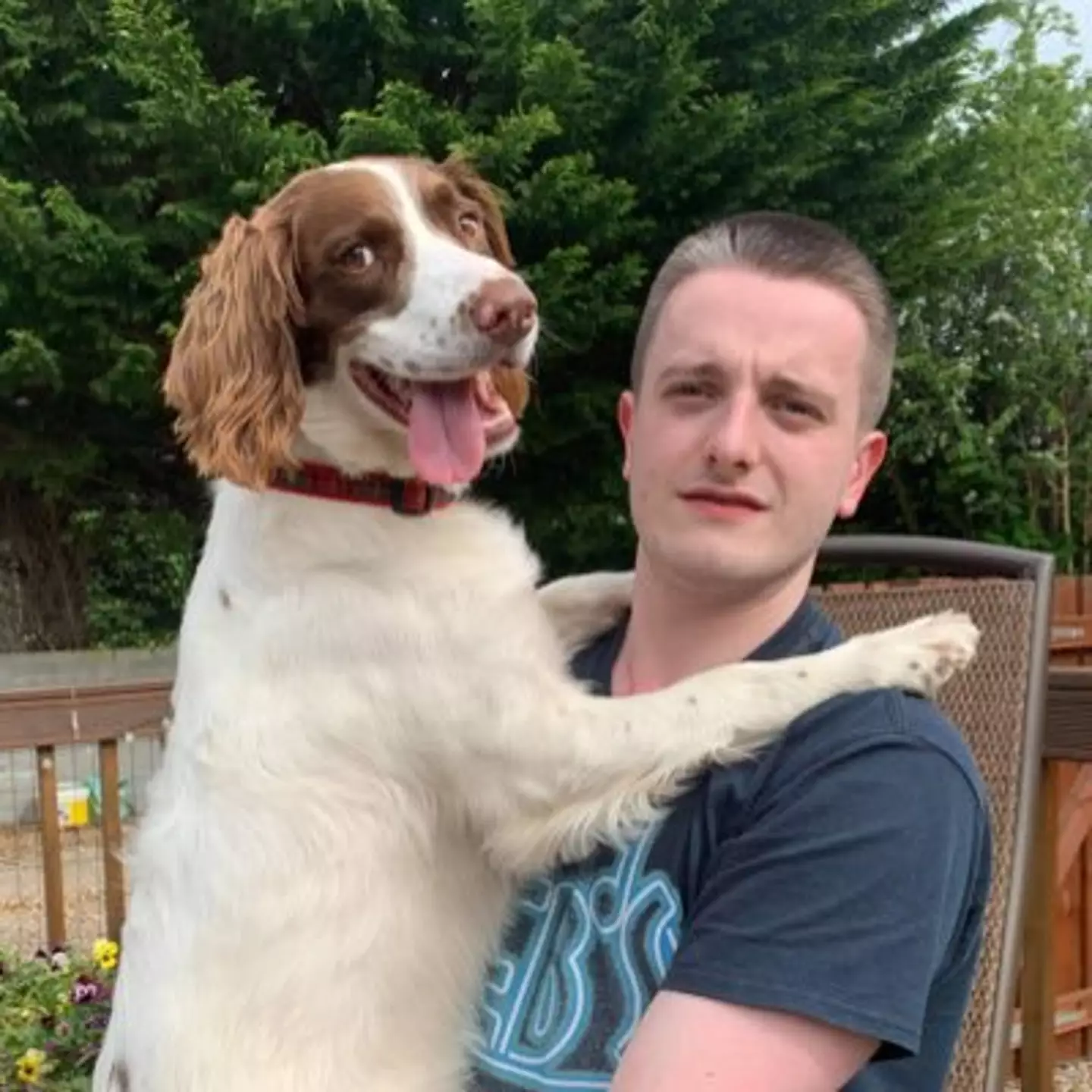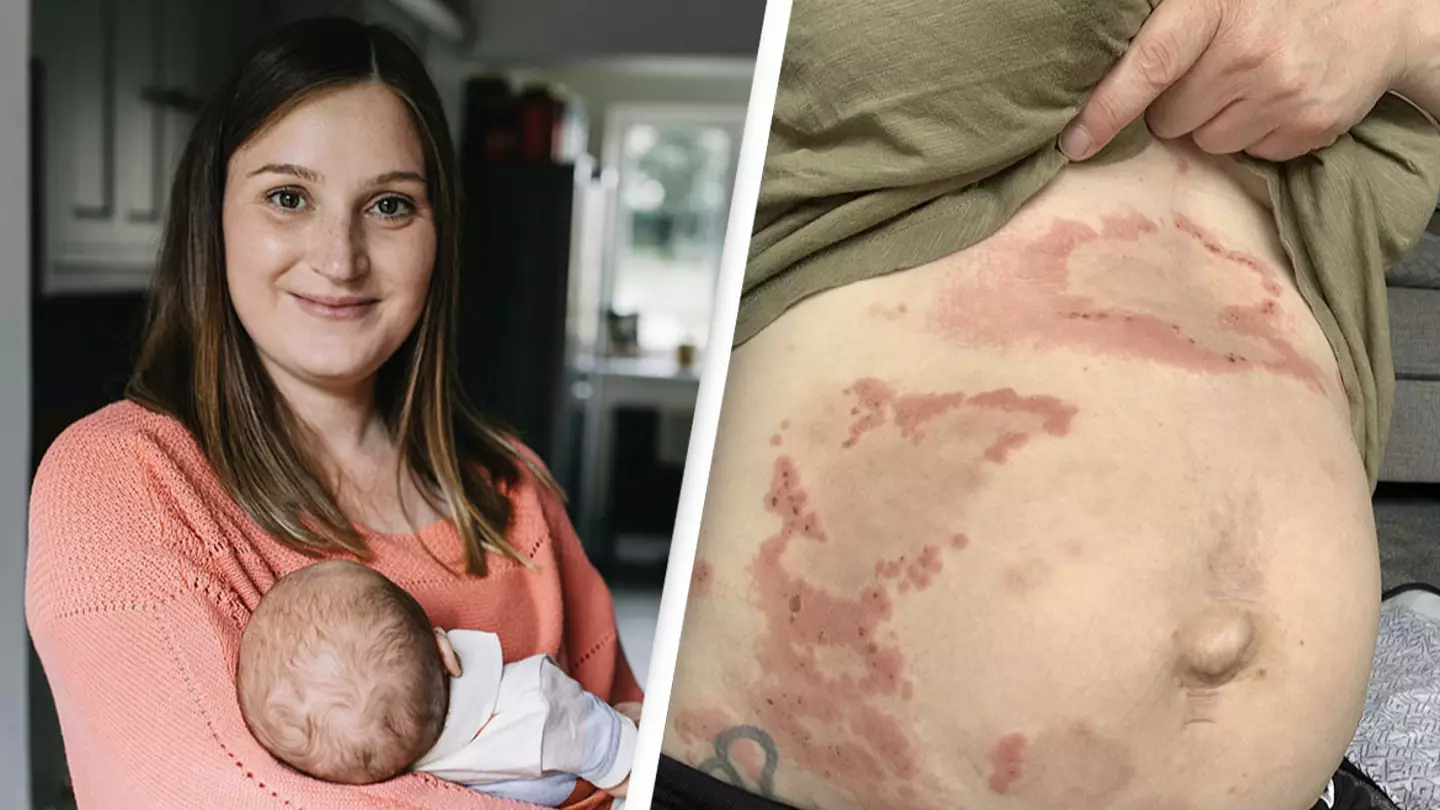
Blisters, welts and 'unbearable red itchy plaques' on her skin - this is what it's like to be 'allergic' to your own baby.
Fiona Hooker, from Basingstoke, Hampshire, first noticed red itchy areas on her stomach at 31 weeks pregnant. At first, they felt like 'nettle stings', but they only got worse as time went on. Soon, her condition 'exploded' into blisters that left her in pain even when holding her new baby.
The 32-year-old was later diagnosed with a rare autoimmune pregnancy condition known as Pemphigoid Gestationis, with a reaction to a gene in her son's DNA likely causing her immune system to attack her own skin. The condition is only known to affect one in 50,000 women.
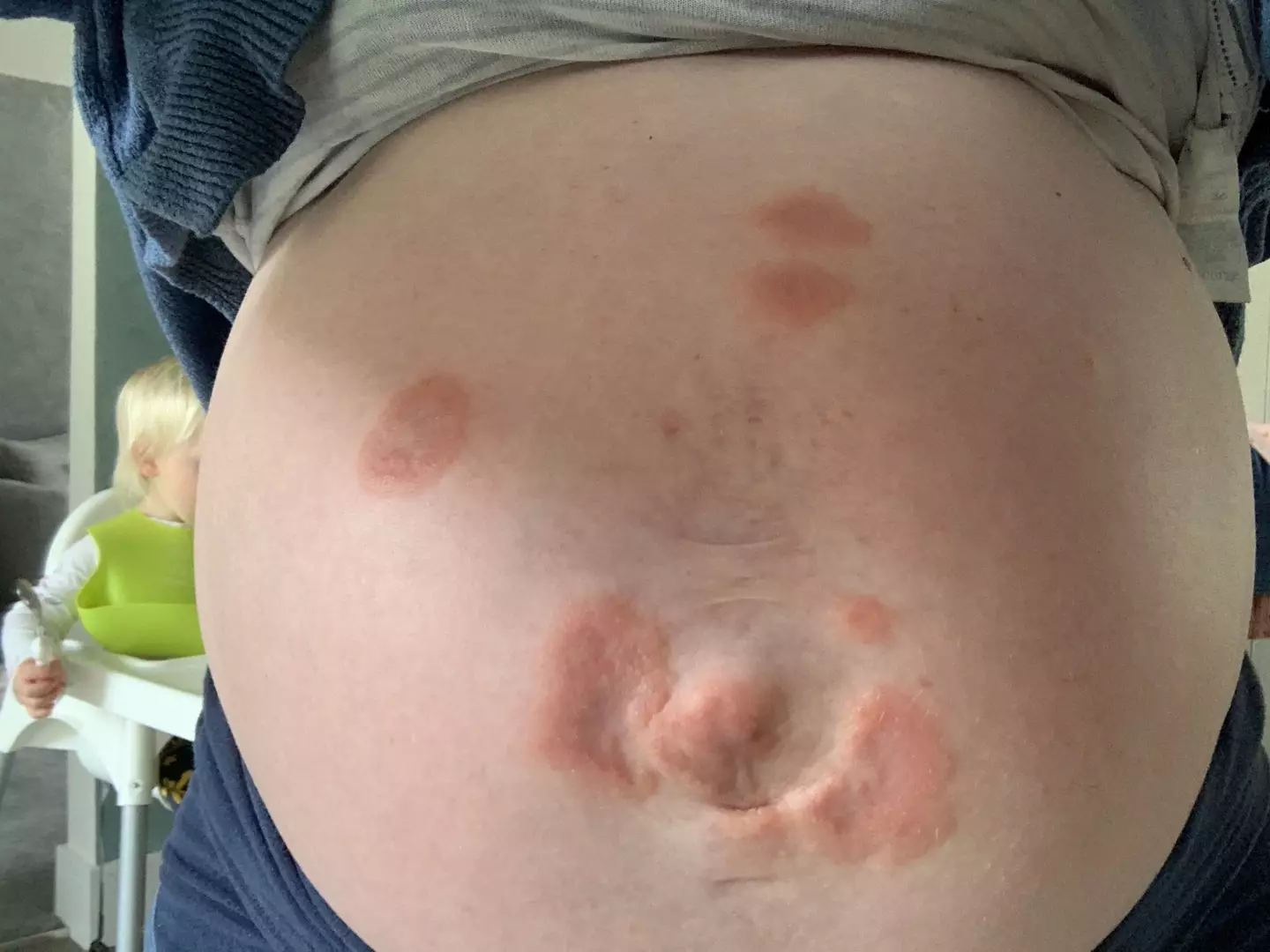
'I got a few tiny, really itchy marks around my belly button that felt like nettle stings. I went to the doctors after a few days because it was getting more and more itchy and unbearable. They gave me some steroid creams which didn't really touch it and it was getting bigger - my belly was covered in red, itchy plaques,' Fiona said.
Advert
'It was the third GP I went to see that said it looked like the condition Pemphigoid Gestationis and he referred me to a dermatologist who gave me the strongest steroid cream you can get. It was like I was allergic to my own baby.
'By 35 weeks I took myself to A&E because I couldn't bear it and nothing was touching it and they gave me four days of oral steroids which really helped it calm down.
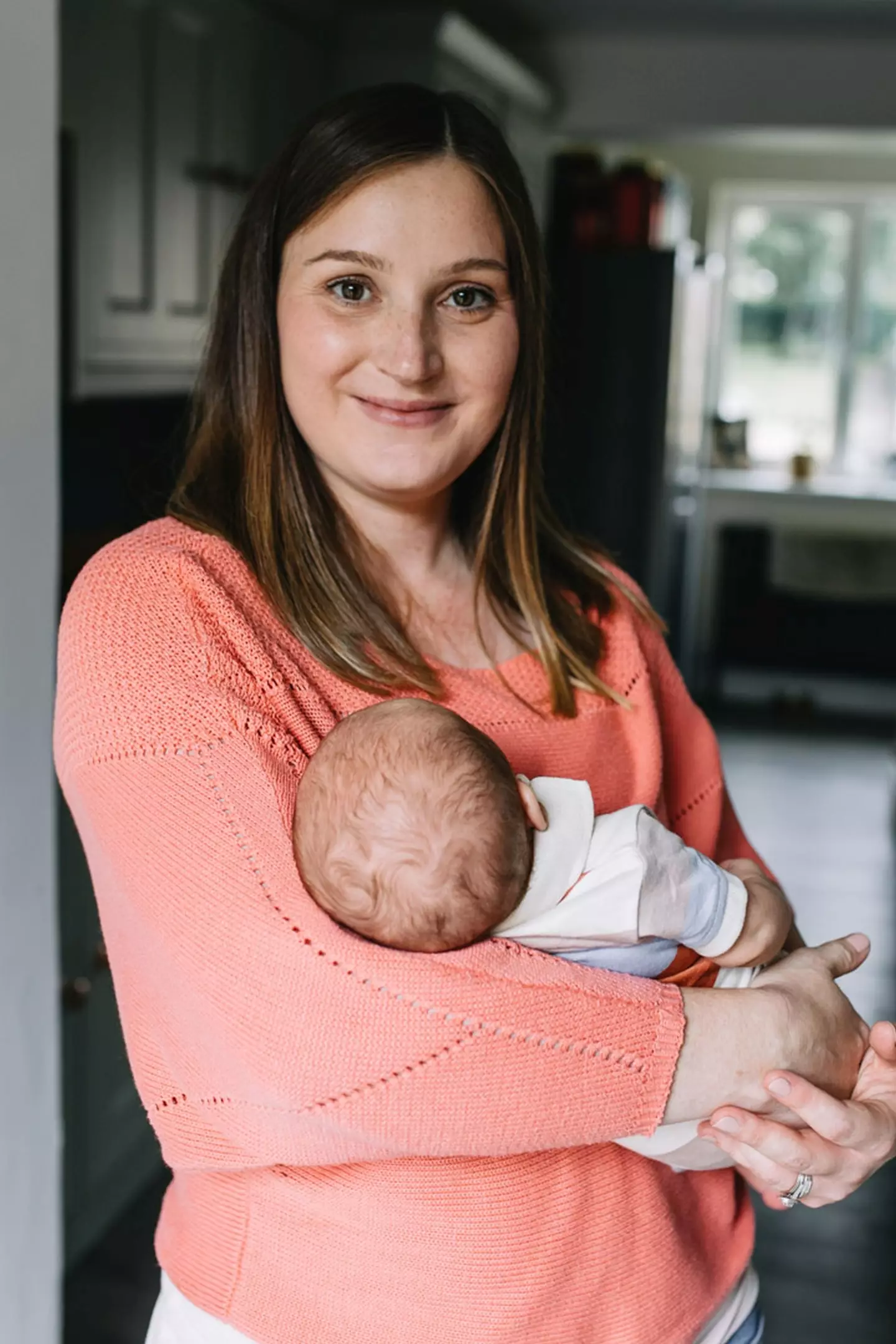
'But two days before I was due to give birth it started to get unbearable again and 24 hours after I'd given birth it just exploded and turned into blisters.
Advert
'If I scratched it, it felt good and temporarily took the itch away but obviously I was removing the blisters and skin so then I was left with raw, really painful skin and the blisters just came back on top of that. It hurt a lot to even hold my son so I wasn't really able to enjoy the newborn stage because of it.'
In order to get the condition under control, she was prescribed a strong dose of oral steroids and cream.
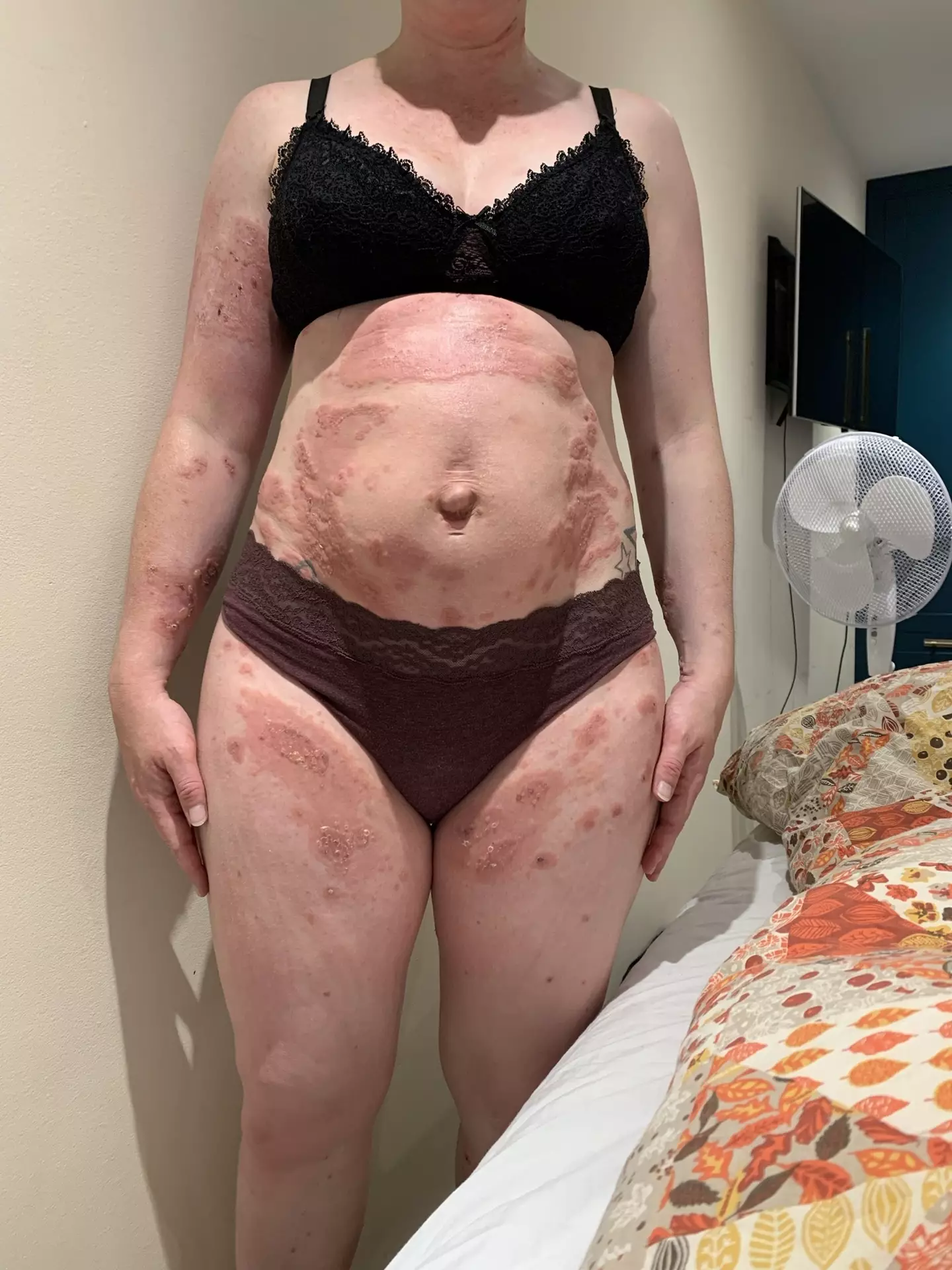
'The pregnancy from 31 to 35 weeks was quite hard because my stomach was on fire and obviously I was quite big and had a toddler as well. When I was in labour I didn't feel a thing, I looked horrendous but it wasn't itchy at all,' she continued.
Advert
'But the postpartum bit when it exploded into blisters on my tummy, chest, arms and legs - everywhere you would hold a baby - that was quite difficult. When I was diagnosed I was shocked because it's so rare - I was hoping they'd got it wrong and it was something else.
'But when it started blistering we knew it was that because that's what differentiates it from other pregnancy rashes... my son must have a gene from his dad that my daughter got me from instead because I didn't have it with my first pregnancy.'
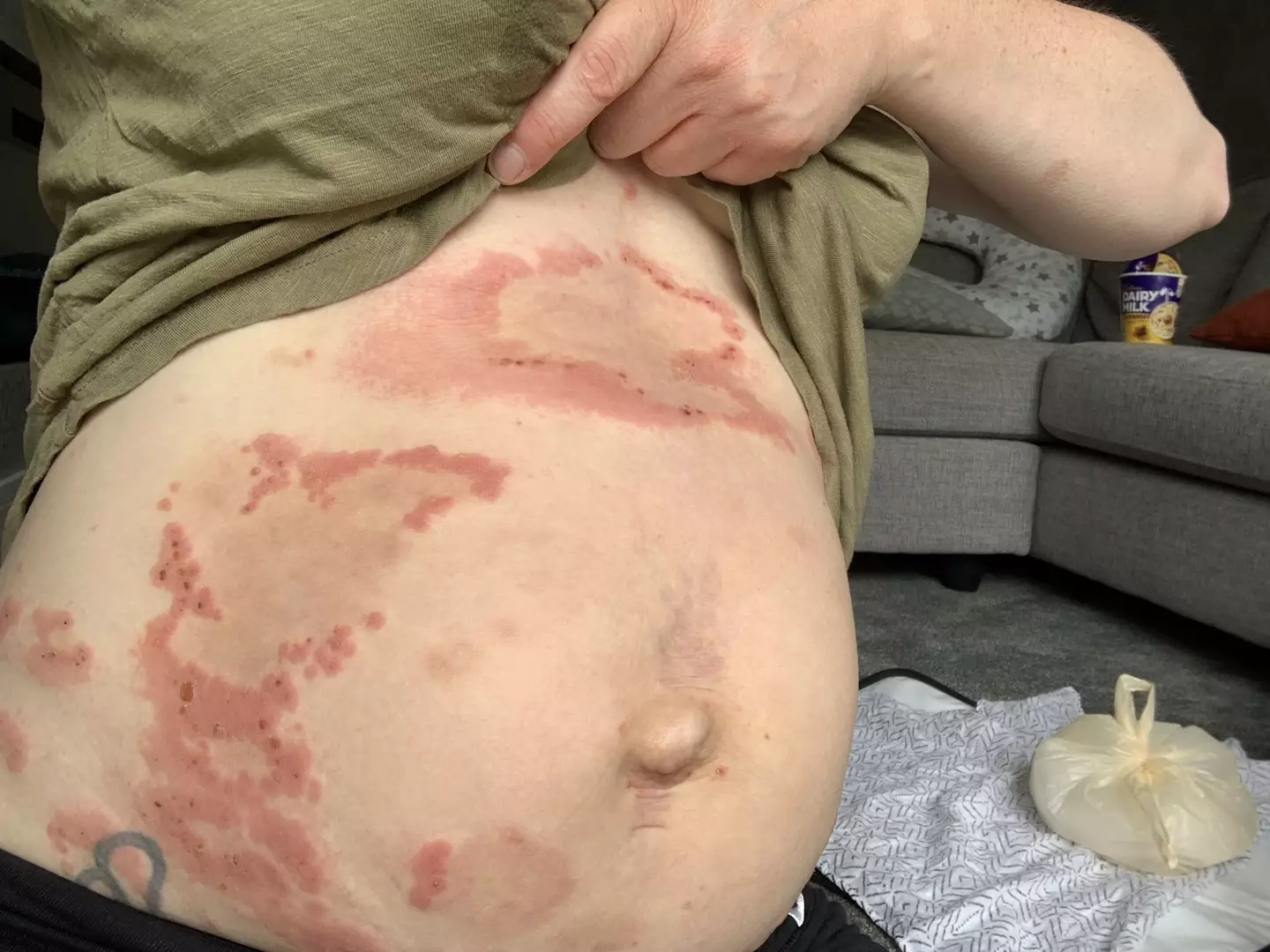
After six months, the symptoms finally started to subside, but she still has to use steroid creams from time to time. 'Because I'm quite recently off the steroids, every now and again I get a bit itchy and have to use a bit of steroid cream, so I think my body is still getting over it,' she said.
Advert
'A lot of people have to have immunosuppressive therapies to get off the steroids and get the condition under control so I'm quite lucky. Once it's triggered it's made worse by certain hormones - oestrogen mainly - so each menstrual cycle I may get a little flare but not enough to need any steroids.
'So I may have some symptoms of it forever but not as bad as before. It's put me off being pregnant again especially because the research says it will come on earlier and worse and I don't think I could do that again even with steroids.'
If you have a story you want to tell, send it to UNILAD via [email protected]
